- Home
- Franklin W. Dixon
The Great Airport Mystery Page 2
The Great Airport Mystery Read online
Page 2
“Employees?” queried Frank.
“Yes,” his father answered. “Actually, you are going to be doing a factory investigation job.”
CHAPTER III
The Ghost Pilot
THE next morning, after the doctor had assured Mr. Hardy that the boys were fit, the detective and his two sons proceeded to the Stanwide Mining Equipment Company for a meeting with Mr. Allen. Soon they were being ushered into a spacious, paneled office.
A graying, distinguished-looking man arose from behind a desk and extended his hand in greeting. Mr. Hardy introduced Frank and Joe. After handshakes Mr. Allen gestured for all of them to take chairs.
The tall executive studied the boys for a moment, then glanced at Mr. Hardy. “I’ve already made arrangements for your sons to be hired as summer employees of our firm.”
“Good,” Mr. Hardy answered. “I’m convinced that this is the only way the case will be solved—by someone working on the inside.”
“Our posing as employees,” Frank spoke up, “will allow Joe and me to investigate without anyone becoming suspicious.”
“I hate to think that any of my employees may be mixed up in this,” Mr. Allen said with a sigh. “However, I’ll do anything to help clear up the mystery.”
“Dad tells us that most of the shortages are of parts that contain platinum,” Joe remarked.
“That’s correct,” replied Mr. Allen. “It’s understandable, too, for they would be the most valuable.”
“Where do you obtain your platinum?” Frank queried.
“We purchase it in large quantities from a firm in Canada.”
As they discussed the case, Mr. Allen noticed the brothers glancing at a strange voodoo figurine mounted on the wall.
“I see you boys are interested in my little curio,” he said.
“Yes, we are,” Frank admitted.
“The figurine is more to me than just an ornament,” Mr. Allen said sadly. “It is also a reminder of a tragedy that occurred several months ago.”
The Hardys listened intently as he related the story. His firm owned a subsidiary company known as Stanwide Research and Development Laboratories. Its function was to conduct exploratory mining work in various parts of the world.
Recently, an expedition had been sent in one of the firm’s aircraft to Ile de la Mer, a small uninhabited island far out in the Caribbean. During the return trip the plane had developed engine trouble and crashed into the sea. Only the copilot, Lance Peterson, had survived. The pilot, Clint Hill, and three mineralogists had gone down in the sinking aircraft. Lance Peterson was now chief pilot for the company.
“I considered Clint Hill not only a loyal employee,” said Mr. Allen, “but also a close friend. It was Clint who sent me the figurine. I was shocked and grieved when he was lost.”
Mr. Allen sat silent for a few seconds, then came back to the case at hand.
“Now, about your employment,” he said to the boys. “Your father asked me to select jobs that would give you as much freedom to roam around the plant as possible. I think an assignment as plant messengers would fill the bill.”
“That’s perfect,” Mr. Hardy agreed.
Mr. Allen asked the boys when they would like to start.
“How about tomorrow?” Frank suggested. “The sooner the better.”
Mr. Hardy informed his sons that right now he and Mr. Allen were going .to examine the firm’s employee files for possible suspects. He suggested that in the meantime Frank and Joe become acquainted with the layout of the plant.
Mr. Allen had one of his office clerks take the young detectives on a brief tour of Stanwide. Then they were introduced to Art Rodax, the man who was to be their boss. Rodax was heavy-set, with thinning hair and a sour-faced, belligerent expression. He seemed to develop an immediate dislike for the two new employees.
“Factory messengers, eh?” he blurted. “I don’t need any more help.”
“But we’ve already been hired,” said Joe. “We start tomorrow morning.”
“Then I guess there’s nothing I can do about it,” Rodax growled. “But let me catch you lying down on the job just once and you won’t last a day.”
He was still grumbling when the boys left to return to Mr. Allen’s office.
“Boy!” Joe exploded. “I’m sure glad we aren’t really going to be working for that sourball.”
“Me too,” said Frank. “He’d make a starving man lose his appetite!”
Mr. Hardy told the boys that his examination of the employee files would take longer than expected. Since Mr. Allen had offered to drive him home later, he suggested that his sons take the car and go now.
“When I get home I’ll let you know if I find out anything,” the detective promised.
“Okay, Dad,” said Frank. “Joe and I want to stop at the airport on the way back to double-check with Lou at the tower on all of last night’s flights.”
Light rain was falling, and a heavy prefrontal fog was beginning to move in as the Hardys arrived at the field. They walked to the tower and climbed the winding steps to the top.
As they entered the control room, Lou Diamond, the tower chief, waved a greeting. A short, stocky, good-natured man, with crew-cut red hair, he nevertheless had an air of authority.
“You boys picked a fine day to pay us a visit,” he said with a laugh. “In a little while that fog will be so thick you can walk on it.”
The Hardys peered through the tinted panes of glass enclosing the control room. Already the ramp area immediately below was vanishing in a milky fog.
“We’re not here just for a visit,” Frank announced. “We thought you might help us by giving out some information.”
The young detectives then told the tower chief about their encounter with the low-flying aircraft the night before.
“Were you able to identify the type of aircraft, or get its registration number?” Diamond asked.
“It was too dark for positive identification,” Joe replied. “Anyway, we were both busy ducking!”
Diamond looked thoughtful. “Funny. I know of no private landing fields in that area.” He paused. “There have been several strange things going on in the air around here lately,” he said.
“What kind of strange things?” Frank asked.
“At night we’ve picked up messages between planes that must be in code. They sure make no sense.”
Suddenly a light flashed on the console and one of the radio speakers crackled to life. It was the unicom frequency used by flight students for practice and by pilots wishing to communicate with one another in the air.
“Bayport tower! This is Highflite One-Four-Alfa!” the pilot identified his craft, using Alfa for A. “How do you read?”
To the boys’ astonishment, the tower chief’s normally ruddy face turned pale. He picked up a microphone, then stood motionless, apparently unable to speak. Finally, in a quivering voice, he responded:
“High ... Highflite One-Four-Alfa! This is Bayport tower. Reading you loud and clear.”
“This is One-Four-Alfa. Not on an instrument flight plan. We are on top at thirteen thousand. Can you get us cleared for an ILS approach at Bayport?”
“Negative, One-Four-Alfa,” replied the tower chief. “Bayport is now below ILS minimums. Advise you contact Air Traffic Control on the proper frequency.”
There was no answer from the aircraft. Diamond seemed to be under a great strain. He placed the microphone on a table and mopped perspiration from his face.
“What’s wrong?” Frank asked anxiously.
“The aircraft that just called! That identification number!” the tower chief said in a shaky voice.
“What about the identification?” Joe urged.
“That’s the number of the plane once owned by Stanwide Mining! The one that crashed in the sea several months ago!”
“M-m-m, that surely is strange,” Frank said, frowning.
“I don’t know what’s going on,” replied the tower chief. “But I’m su
re of one thing. The pilot who called sounded exactly like Clint Hill!”
Just then the radio speaker again crackled to life. A weird sound, like a disembodied chuckle, came eerily from it. Then a voice spoke. “The dead can tell no tales!”
“That is Clint Hill!” Diamond murmured, looking like a ghost himself.
“What do you make of it?” Frank asked.
“Only one thing,” said Diamond in a frightened voice. “I never used to believe in ghosts. But now I do!”
CHAPTER IV
Police Orders
FRANK and Joe, startled by the unearthly voice, were equally amazed by the tower chief’s admission that he believed in ghosts!
“There must be some other explanation,” Frank said.
“Well, maybe. I guess I lost my head for a moment. But there’s no way we can check on the aircraft,” Diamond declared. “Our field doesn’t have airport surveillance radar, and the pilot said he wasn’t on an instrument flight plan, so Air Traffic Control wouldn’t have any record on him.”
“You are required to keep a record on tape of all two-way communications between the tower and aircraft, aren’t you?” asked Frank.
“Yes,” Diamond replied.
“Could it be arranged for us to borrow a copy of the tape with Hill’s voice on it?”
“I’ll have to check with our regional office,” said the tower chief. “But in view of the circumstances, I’m sure it will be all right.”
The boys, puzzled by this airport mystery, left the control tower and headed for the terminal building.
“Let’s find a telephone and call Mr. Allen,” said Frank. “I want to tell him what happened, and also ask him where we can find Lance Peterson.”
Mr. Allen was astounded at hearing the news about Clint Hill. He was certain that it was someone’s gruesome idea of a joke. Frank then asked him if he had heard anything about the strange coded messages that Lou Diamond had mentioned.
“No, I haven’t.”
Frank next inquired where he could find Lance Peterson, and was told that he should be in his office at the Stanwide hangar.
The Hardys walked along the north side of the Bayport field until they came to the Stanwide hangar. It was a huge metal and stone structure with a high convex roof. On each side of the building were lean-tos which housed the shops and offices of the company’s flight operations. The door to one of these offices was marked CHIEF PILOT.
The Hardys knocked, then opened the door and walked in. Standing near a window was a man of average height, with sandy-colored hair and a hard, weathered face. He turned and stared at the Hardys as they entered.
“Mr. Peterson?” asked Frank.
“That’s right,” the man replied. “What can I do for you?”
The boys introduced themselves and announced that they would like to ask him a few questions. Peterson agreed, and appeared quite calm and pleasant until Frank asked him about the crash at sea in which Clint Hill had been lost. Peterson’s face paled. He nervously sat down behind his desk and clutched both sides of the chair.
“We crashed, and that’s all there is to it!” he snapped. “Let’s drop the subject.”
“What was the cause of the crash?” Joe asked.
“The airplane’s at the bottom of the ocean,” said the pilot. “There’s no way I can check for the reasons.”
“You were in the plane,” Frank countered. “Can’t you make a guess?”
“Both engines quit,” Peterson said. “In those circumstances, fuel contamination is the most probable cause.”
“Are you certain Clint Hill is dead?” Joe queried.
“Of course he is!” Peterson answered impatiently. “Why do you ask that?”
“Because his ghost contacted the tower just a little while ago,” Frank announced.
“I’m not in the mood for bad jokes,” shouted the pilot, leaping to his feet. He glanced at his wrist watch. “Anyway, I’m scheduled to fly in a few minutes. I’ll have to go.”
The boys left the office, with Peterson trailing close behind them. He pulled the door shut, locked it, then walked off without saying another word.
“What do you make of him?” Joe asked his brother.
“Our questions sure made him uneasy. If you ask me, he’s trying to cover up something.”
The young detectives decided to look around the hangar for possible clues to the mystery. They entered by a side door and acted very casual, as if interested only in seeing the aircraft stored there. They had covered nearly half the premises when a young man came strolling out of the pilots’ lounge.
“Hey, look!” said Joe. “There’s Jerry Madden!”
The young pilot was a wiry, good-looking youth whose brother was a teammate of the Hardys on the school’s varsity football squad.
“Hello, Jerry!” called Frank.
Jerry turned. When he saw the boys, who ran to meet him, his face broke into a wide smile.
“Hi! What are you fellows doing out here at our lil ole aerodrome?” he asked with a laugh. “Getting the yen to do some aviating?”
“We’d like nothing better than a short hop in a sightseeing plane,” Frank said with a grin, in an effort to explain their presence without arousing Jerry’s curiosity. “But the weather has other ideas. So we decided just to roam around and look at the planes.”
“What are you doing here?” Joe asked Jerry.
“I have a job flying for the Stanwide company,” Jerry explained. “I was hired soon after I received my instruments and multiengine ratings last spring.”
As they talked, the boys were not aware that a uniformed policeman was approaching from behind. The officer hailed them.
“What are you fellows doing here?” he demanded.
“I work here, Officer,” Jerry said.
“And who are you two?” the policeman said, eying the Hardys carefully.
“They’re Frank and—” Jerry began.
“Let them speak for themselves,” interrupted the policeman.
“I’m Frank Hardy. This is my brother, Joe. We’re going to work for Stanwide.”
“I’ll have to see some identification.”
The boys extracted cards from their wallets and handed them to the policeman. He examined the cards, then suddenly became apologetic.
“I know of you and your father by reputation,” he said. “Sorry to have bothered you.”
Suddenly Joe sensed that they were being watched. He glanced to his left, without turning his head, and out of the corner of his eye glimpsed a man’s face peering at them from behind an airplane near the entrance. But the face drew back out of sight before Joe could distinguish the features.
“Are you boys here on a case?” the policeman asked.
“We’re on vacation. This is a summer job,” Joe replied, speaking more loudly than usual for the benefit of the man behind the plane. “We were just looking at the company’s airplanes.” He nudged Frank to agree.
“What seems to be the trouble, Officer?” Jerry questioned.
“Our desk sergeant received a call saying that two prowlers had been seen in this hangar,” the policeman explained.
“Do you know who made the call?” Frank asked.
“No, it was anonymous.”
Joe glanced in the direction where he had seen the face. It did not reappear. He motioned Frank to keep talking, then darted to where he had spotted the eavesdropper. No one was there.
The young detective quietly moved in the direction he thought the stranger must have taken. Joe found it awkward trying to maneuver, unseen, around the closely packed aircraft. Suddenly he spotted a stocky man in mechanic’s clothes walking quickly toward Lance Peterson’s office. Joe hid behind the tail section of an aircraft and watched. Upon reaching Peterson’s door, the mechanic anxiously jiggled the knob. Finding it locked, he walked away and out of sight.
Joe returned to Frank and the others. He apologized for going off so abruptly. “Thought I saw one of the real prowlers, but
I must have been mistaken.”
“How many mechanics do you have working here, Jerry?” Frank asked.
“Eight,” he answered. “But there’s only one on duty in the hangar today—Mike Zimm. Why do you ask?”
“Oh, I’m just curious,” Frank said nonchalantly. “Joe, it’s time we started for home.”
The boys, accompanied by Jerry and the policeman, walked toward the door of the hangar. As they neared it, Frank and Joe noticed something that brought them to a stop. On the floor lay a splintered section of wooden board.
The boys thought it strange that a piece of debris like that should be left on a floor so spotlessly clean.
Apparently the policeman thought so too. He bent down and picked up the board. Under it was a set of footprints, embedded deeply in the concrete.
“I wonder whose they are,” said Frank.
Jerry Madden moved closer and gazed down at the floor.
“I know whose footprints they are,” he said. “Clint Hill’s.”
CHAPTER V
Warehouse Crash
“CLINT Hill’s footprints!” Joe exclaimed. “How do you know, Jerry?”
“The head of our company, Mr. Allen, was very fond of Clint,” the pilot explained. “Shortly before he was lost in a crash at sea, the hangar floor was resurfaced with new concrete. Mr. Allen, perhaps partly in fun, asked Clint to make the prints. I wasn’t here at the time, but it’s a well-known story around the flight department.”
The Hardys studied the footprints carefully. They noticed that the instep of the right foot was narrower than that of the left.
The policeman, who had to get back to his regular duties, said good-by. Jerry watched his young detective friends as they continued their study of the prints.
“I saw something just before I met you fellows that perhaps I should tell you,” he said.
“What’s that?” Frank asked.
“A man’s arm reached in through the door and placed that board over the prints,” Jerry explained.
“That’s funny,” Frank commented.

 The Great Pumpkin Smash
The Great Pumpkin Smash Who Let the Frogs Out?
Who Let the Frogs Out? Return to Black Bear Mountain
Return to Black Bear Mountain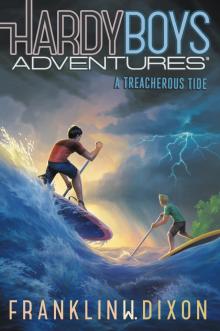 A Treacherous Tide
A Treacherous Tide Bug-Napped
Bug-Napped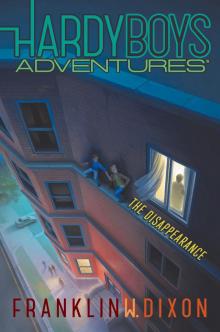 The Disappearance
The Disappearance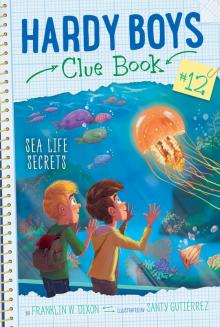 Sea Life Secrets
Sea Life Secrets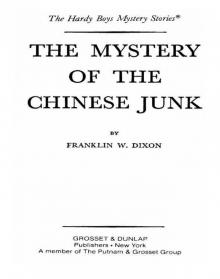 The Mystery of the Chinese Junk
The Mystery of the Chinese Junk A Skateboard Cat-astrophe
A Skateboard Cat-astrophe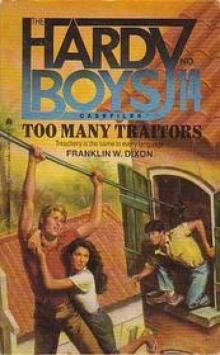 Too Many Traitors
Too Many Traitors Galaxy X
Galaxy X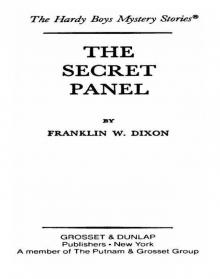 The Secret Panel
The Secret Panel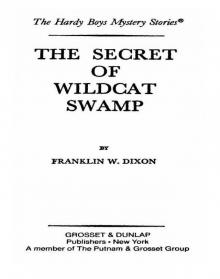 The Secret of Wildcat Swamp
The Secret of Wildcat Swamp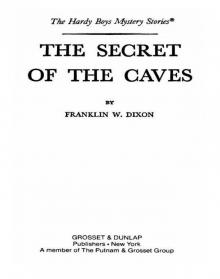 The Secret of the Caves
The Secret of the Caves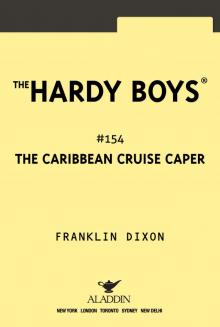 The Caribbean Cruise Caper
The Caribbean Cruise Caper Without a Trace
Without a Trace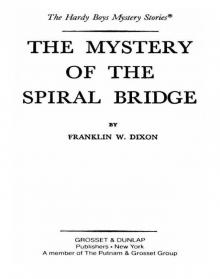 The Mystery of the Spiral Bridge
The Mystery of the Spiral Bridge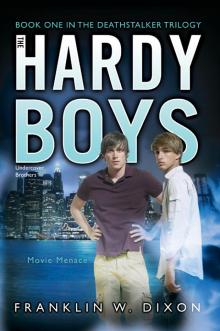 Movie Menace
Movie Menace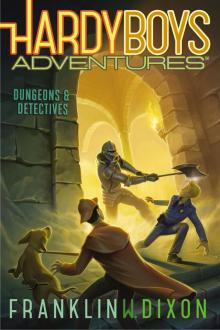 Dungeons & Detectives
Dungeons & Detectives Water-Ski Wipeout
Water-Ski Wipeout The Case of the Psychic's Vision
The Case of the Psychic's Vision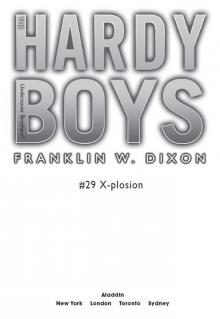 X-plosion
X-plosion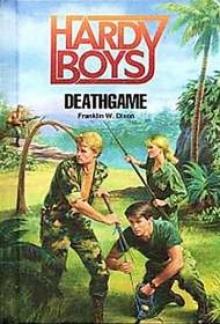 Deathgame
Deathgame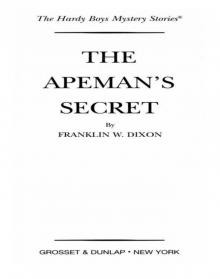 The Apeman's Secret
The Apeman's Secret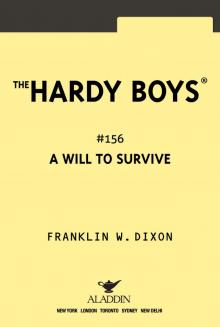 A Will to Survive
A Will to Survive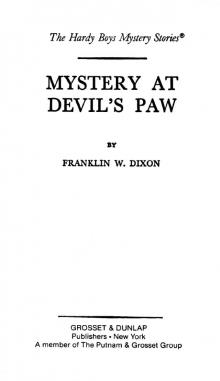 Mystery at Devil's Paw
Mystery at Devil's Paw Blood Money
Blood Money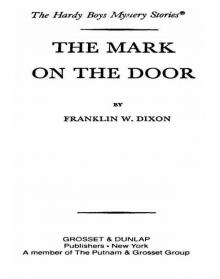 The Mark on the Door
The Mark on the Door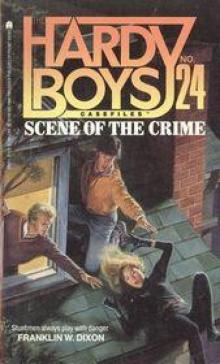 Scene of the Crime
Scene of the Crime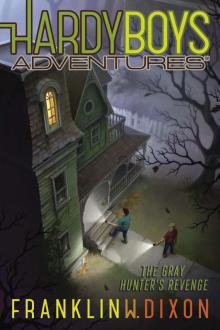 The Gray Hunter's Revenge
The Gray Hunter's Revenge Stolen Identity
Stolen Identity The Mummy's Curse
The Mummy's Curse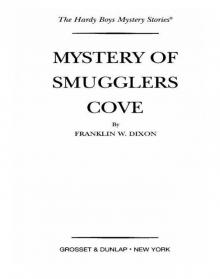 Mystery of Smugglers Cove
Mystery of Smugglers Cove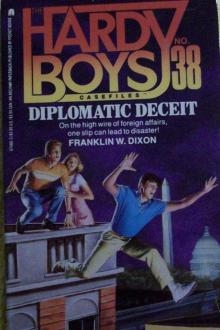 Diplomatic Deceit
Diplomatic Deceit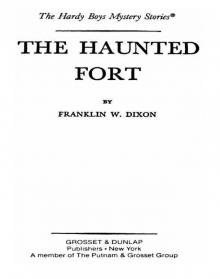 The Haunted Fort
The Haunted Fort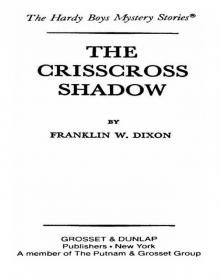 The Crisscross Shadow
The Crisscross Shadow Secret of the Red Arrow
Secret of the Red Arrow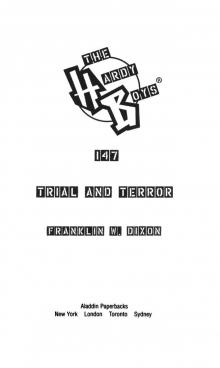 Trial and Terror
Trial and Terror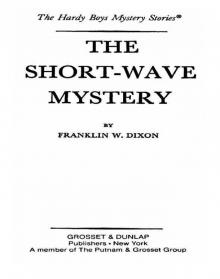 The Short-Wave Mystery
The Short-Wave Mystery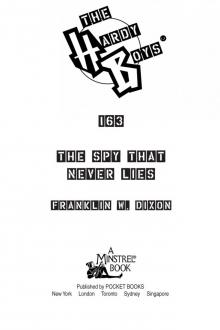 The Spy That Never Lies
The Spy That Never Lies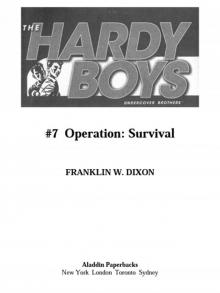 Operation: Survival
Operation: Survival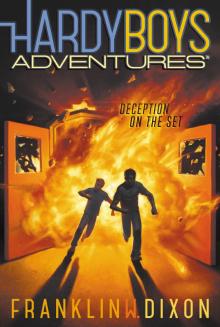 Deception on the Set
Deception on the Set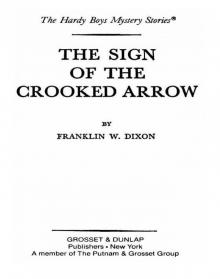 The Sign of the Crooked Arrow
The Sign of the Crooked Arrow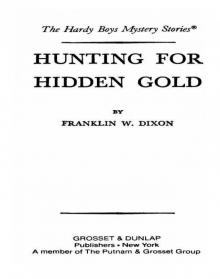 Hunting for Hidden Gold
Hunting for Hidden Gold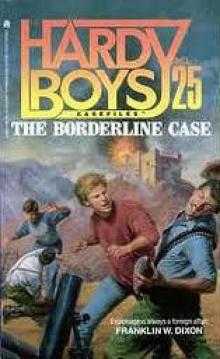 Disaster for Hire
Disaster for Hire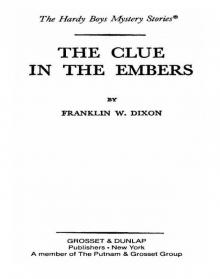 The Clue in the Embers
The Clue in the Embers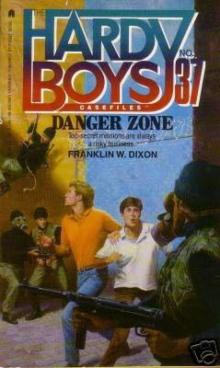 Danger Zone
Danger Zone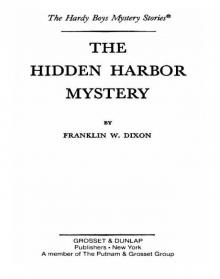 The Hidden Harbor Mystery
The Hidden Harbor Mystery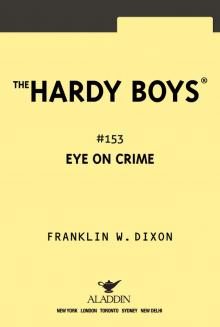 Eye on Crime
Eye on Crime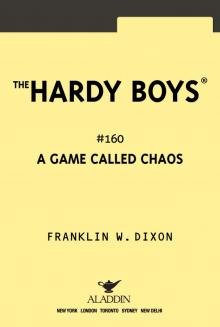 A Game Called Chaos
A Game Called Chaos The Bicycle Thief
The Bicycle Thief The Missing Playbook
The Missing Playbook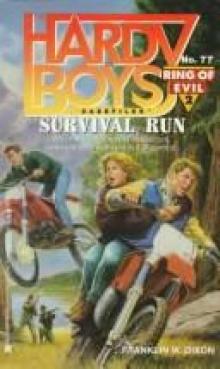 Survival Run
Survival Run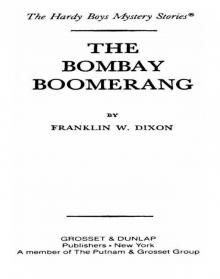 The Bombay Boomerang
The Bombay Boomerang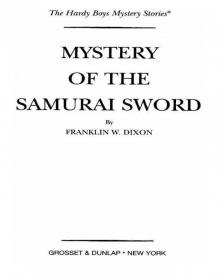 Mystery of the Samurai Sword
Mystery of the Samurai Sword Burned
Burned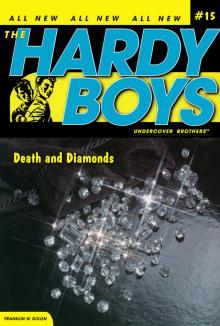 Death and Diamonds
Death and Diamonds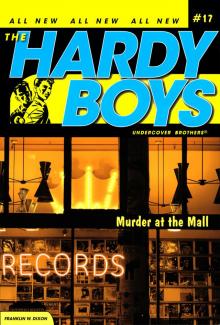 Murder at the Mall
Murder at the Mall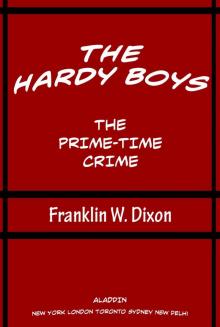 The Prime-Time Crime
The Prime-Time Crime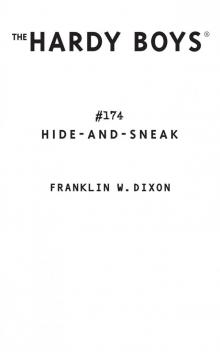 Hide-and-Sneak
Hide-and-Sneak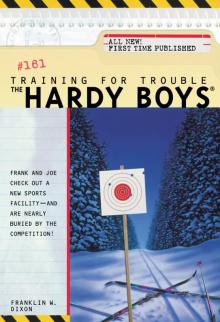 Training for Trouble
Training for Trouble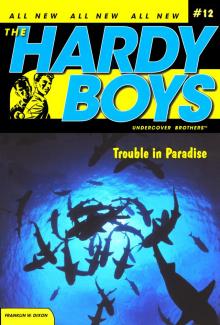 Trouble in Paradise
Trouble in Paradise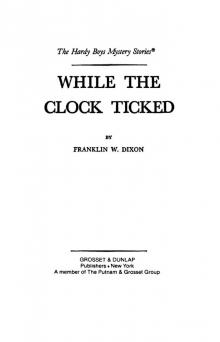 While the Clock Ticked
While the Clock Ticked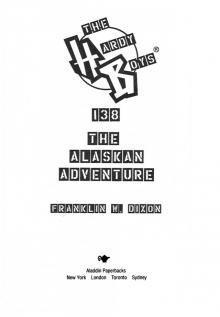 The Alaskan Adventure
The Alaskan Adventure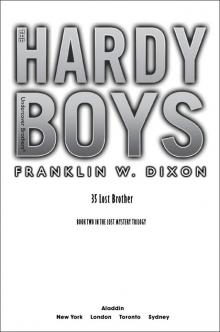 The Lost Brother
The Lost Brother Tunnel of Secrets
Tunnel of Secrets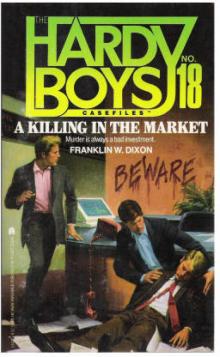 A Killing in the Market
A Killing in the Market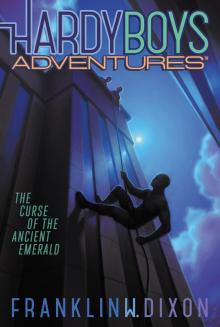 The Curse of the Ancient Emerald
The Curse of the Ancient Emerald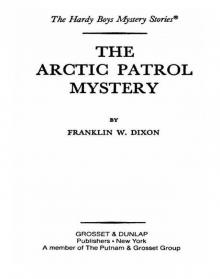 The Arctic Patrol Mystery
The Arctic Patrol Mystery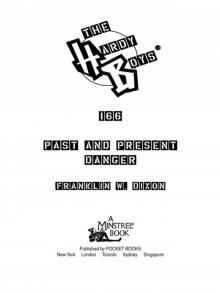 Past and Present Danger
Past and Present Danger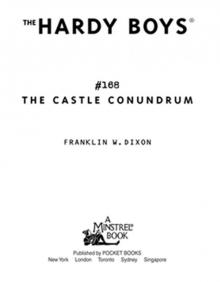 The Castle Conundrum (Hardy Boys)
The Castle Conundrum (Hardy Boys)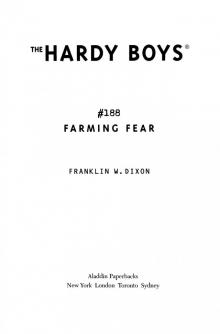 Farming Fear
Farming Fear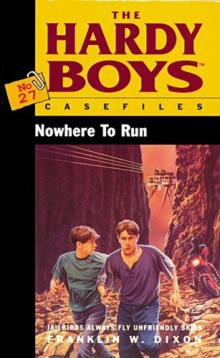 Nowhere to Run
Nowhere to Run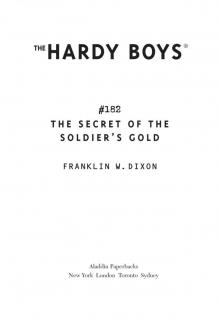 The Secret of the Soldier's Gold
The Secret of the Soldier's Gold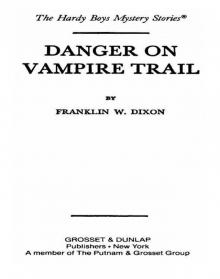 Danger on Vampire Trail
Danger on Vampire Trail The Lure of the Italian Treasure
The Lure of the Italian Treasure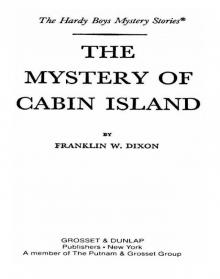 The Mystery of Cabin Island
The Mystery of Cabin Island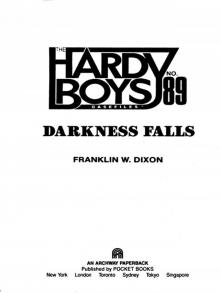 Darkness Falls
Darkness Falls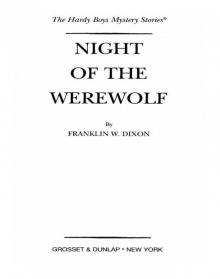 Night of the Werewolf
Night of the Werewolf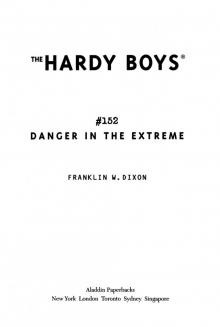 Danger in the Extreme
Danger in the Extreme The Lazarus Plot
The Lazarus Plot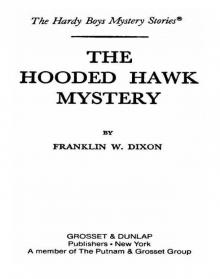 The Hooded Hawk Mystery
The Hooded Hawk Mystery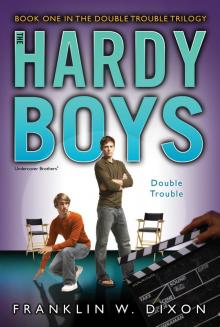 Double Trouble
Double Trouble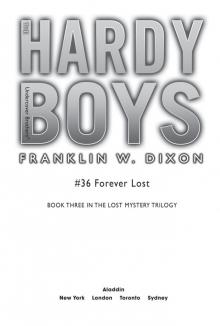 Forever Lost
Forever Lost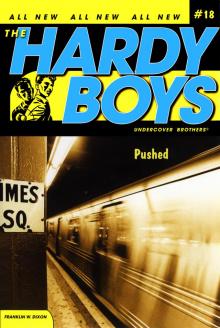 Pushed
Pushed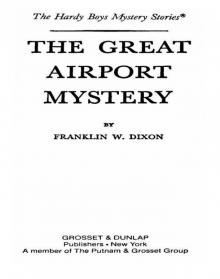 The Great Airport Mystery
The Great Airport Mystery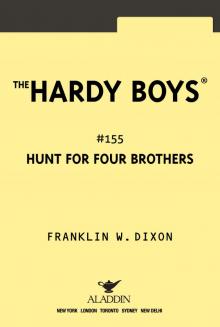 The Hunt for Four Brothers
The Hunt for Four Brothers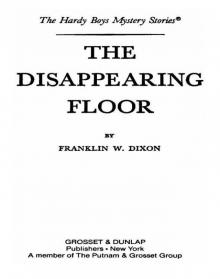 The Disappearing Floor
The Disappearing Floor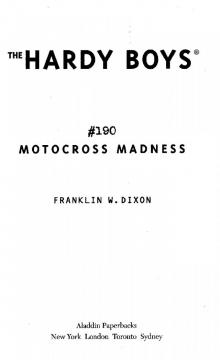 Motocross Madness
Motocross Madness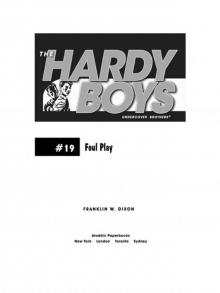 Foul Play
Foul Play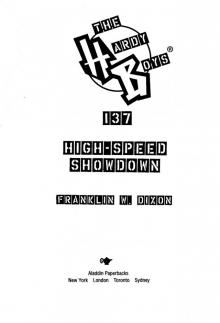 High-Speed Showdown
High-Speed Showdown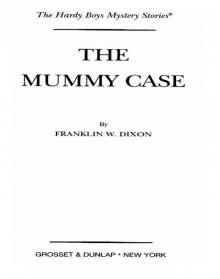 The Mummy Case
The Mummy Case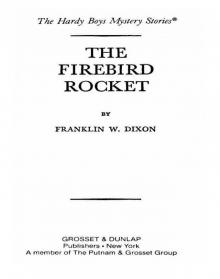 The Firebird Rocket
The Firebird Rocket Trouble in Warp Space
Trouble in Warp Space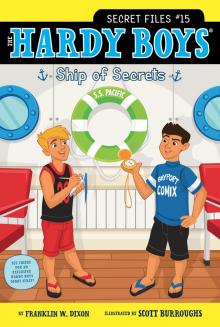 Ship of Secrets
Ship of Secrets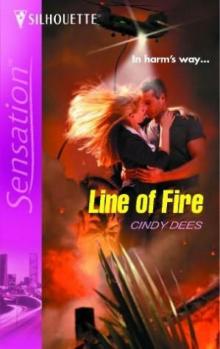 Line of Fire
Line of Fire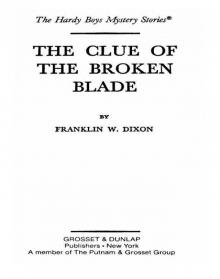 The Clue of the Broken Blade
The Clue of the Broken Blade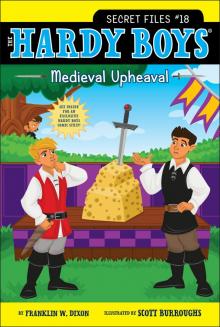 Medieval Upheaval
Medieval Upheaval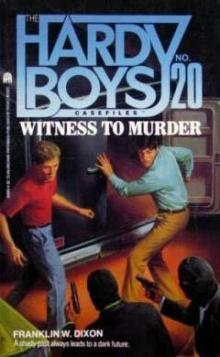 Witness to Murder
Witness to Murder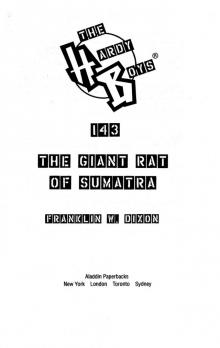 The Giant Rat of Sumatra
The Giant Rat of Sumatra Attack of the Bayport Beast
Attack of the Bayport Beast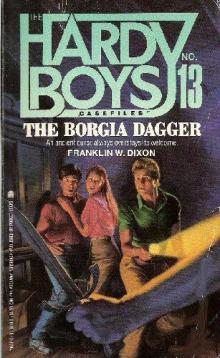 The Borgia Dagger
The Borgia Dagger Scavenger Hunt Heist
Scavenger Hunt Heist No Way Out
No Way Out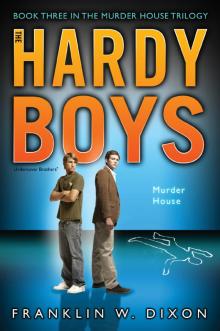 Murder House
Murder House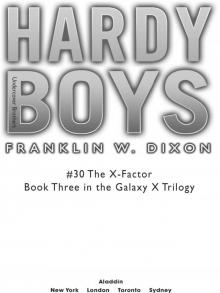 The X-Factor
The X-Factor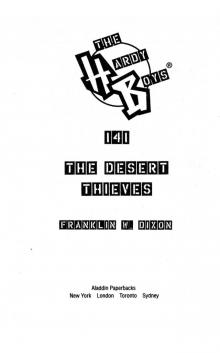 The Desert Thieves
The Desert Thieves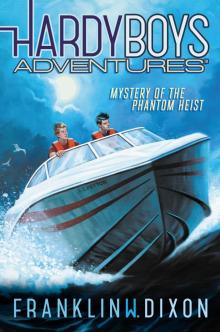 Mystery of the Phantom Heist
Mystery of the Phantom Heist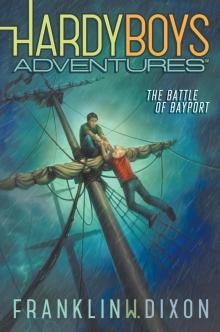 The Battle of Bayport
The Battle of Bayport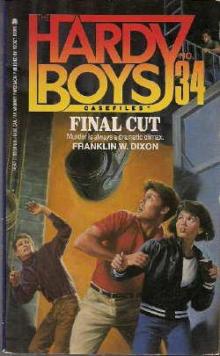 Final Cut
Final Cut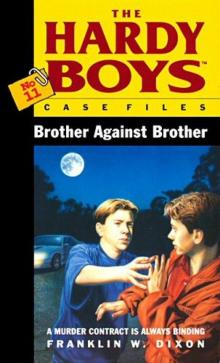 Brother Against Brother
Brother Against Brother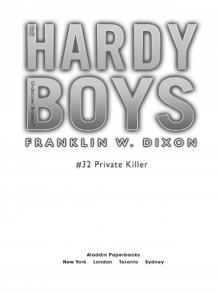 Private Killer
Private Killer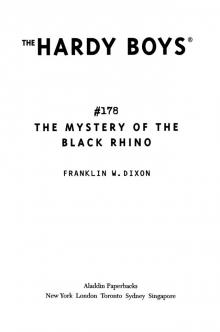 The Mystery of the Black Rhino
The Mystery of the Black Rhino Feeding Frenzy
Feeding Frenzy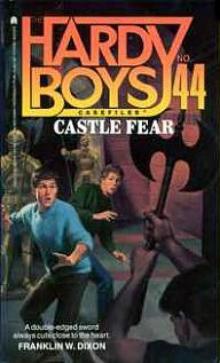 Castle Fear
Castle Fear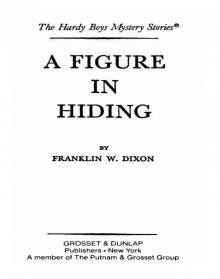 A Figure in Hiding
A Figure in Hiding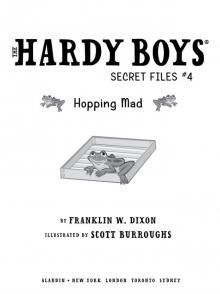 Hopping Mad
Hopping Mad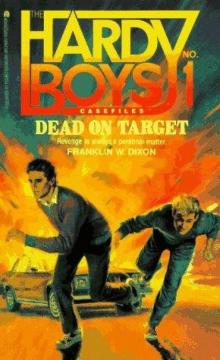 Dead on Target
Dead on Target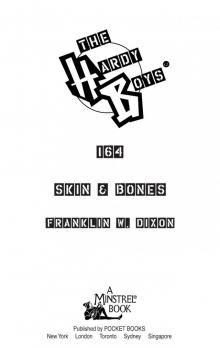 Skin and Bones
Skin and Bones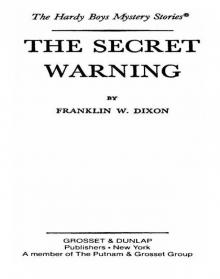 The Secret Warning
The Secret Warning Flesh and Blood
Flesh and Blood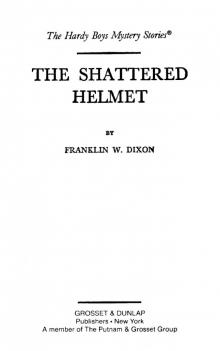 The Shattered Helmet
The Shattered Helmet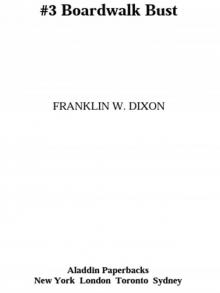 Boardwalk Bust
Boardwalk Bust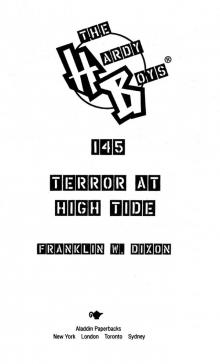 Terror at High Tide
Terror at High Tide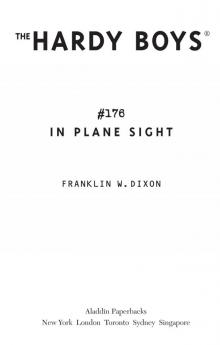 In Plane Sight
In Plane Sight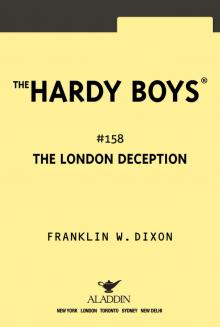 The London Deception
The London Deception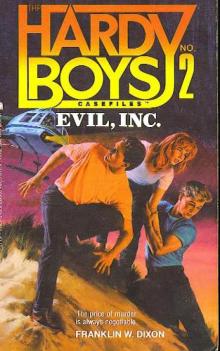 Evil, Inc.
Evil, Inc.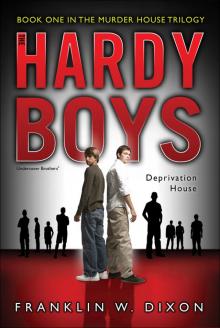 Deprivation House
Deprivation House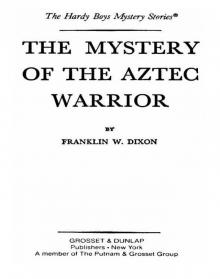 The Mystery of the Aztec Warrior
The Mystery of the Aztec Warrior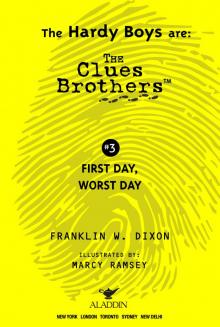 First Day, Worst Day
First Day, Worst Day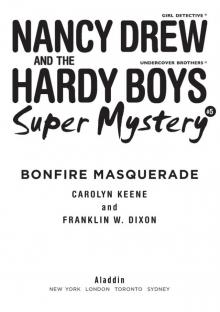 Bonfire Masquerade
Bonfire Masquerade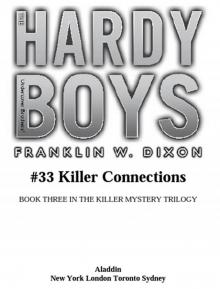 Killer Connections
Killer Connections Strategic Moves
Strategic Moves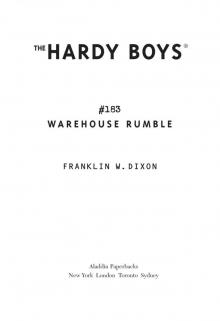 Warehouse Rumble
Warehouse Rumble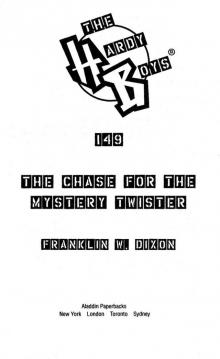 The Chase for the Mystery Twister
The Chase for the Mystery Twister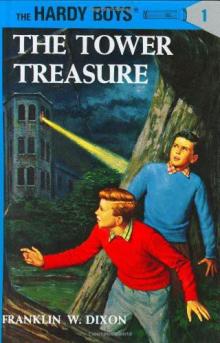 The Tower Treasure thb-1
The Tower Treasure thb-1 The Children of the Lost
The Children of the Lost The Last Laugh
The Last Laugh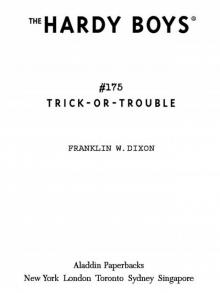 Trick-or-Trouble
Trick-or-Trouble Perfect Getaway
Perfect Getaway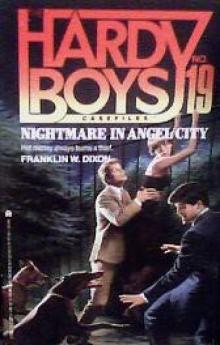 Nightmare in Angel City
Nightmare in Angel City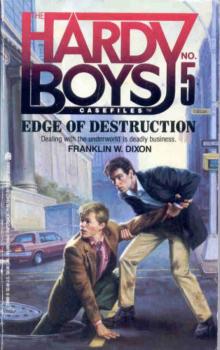 Edge of Destruction
Edge of Destruction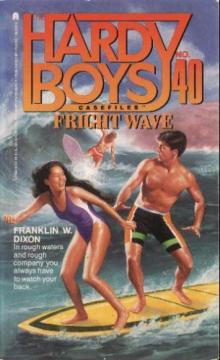 Fright Wave
Fright Wave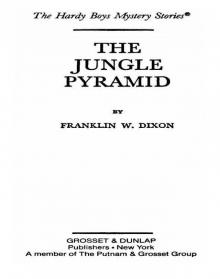 The Jungle Pyramid
The Jungle Pyramid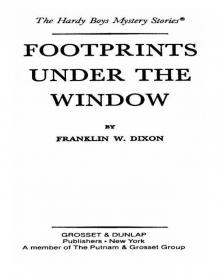 Footprints Under the Window
Footprints Under the Window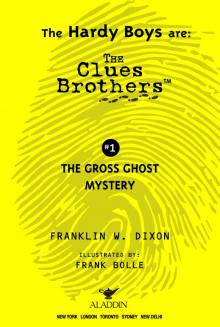 The Gross Ghost Mystery
The Gross Ghost Mystery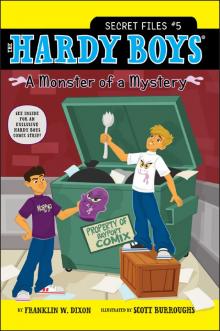 A Monster of a Mystery
A Monster of a Mystery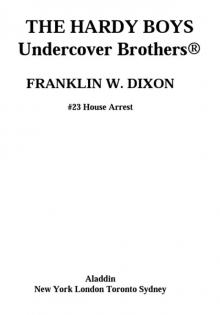 House Arrest
House Arrest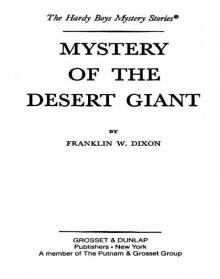 Mystery of the Desert Giant
Mystery of the Desert Giant Talent Show Tricks
Talent Show Tricks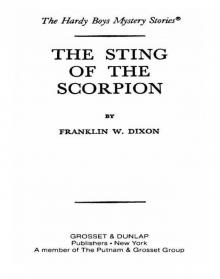 The Sting of the Scorpion
The Sting of the Scorpion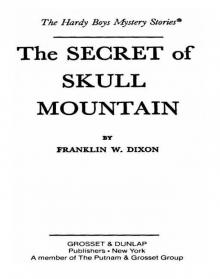 The Secret of Skull Mountain
The Secret of Skull Mountain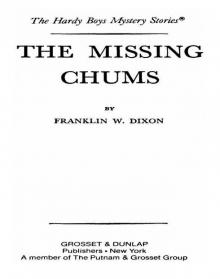 The Missing Chums
The Missing Chums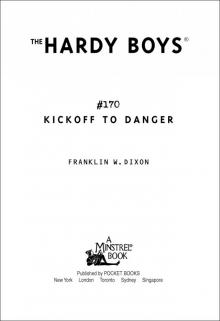 Kickoff to Danger
Kickoff to Danger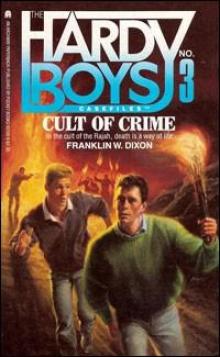 Cult of Crime
Cult of Crime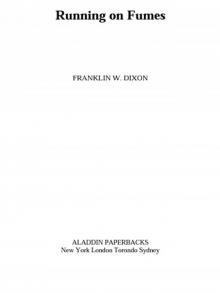 Running on Fumes
Running on Fumes Martial Law
Martial Law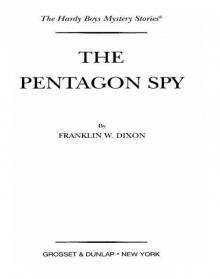 The Pentagon Spy
The Pentagon Spy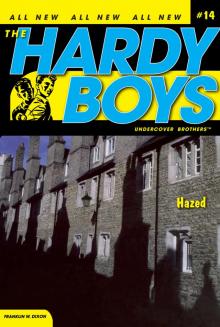 Hazed
Hazed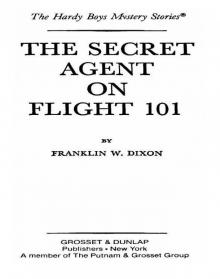 The Secret Agent on Flight 101
The Secret Agent on Flight 101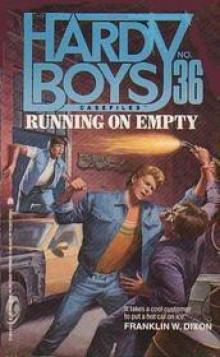 Running on Empty
Running on Empty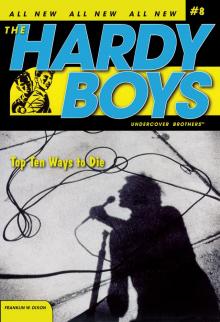 Top Ten Ways to Die
Top Ten Ways to Die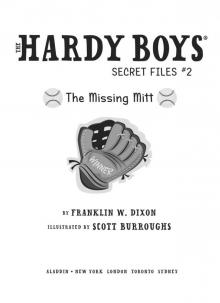 The Missing Mitt
The Missing Mitt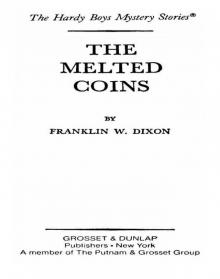 The Melted Coins
The Melted Coins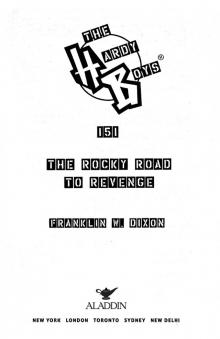 The Rocky Road to Revenge
The Rocky Road to Revenge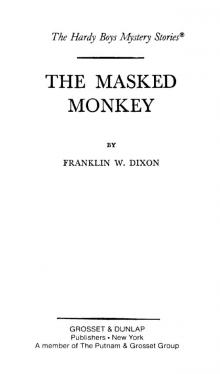 The Masked Monkey
The Masked Monkey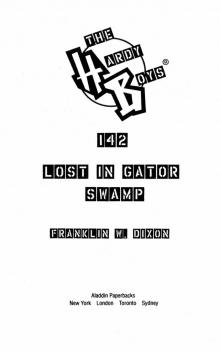 Lost in Gator Swamp
Lost in Gator Swamp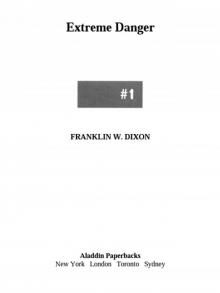 Extreme Danger
Extreme Danger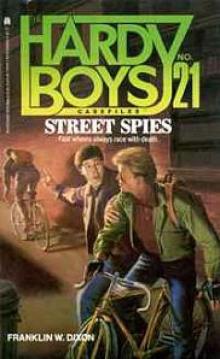 Street Spies
Street Spies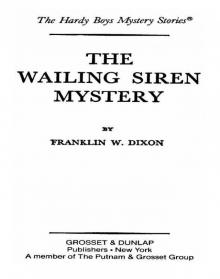 The Wailing Siren Mystery
The Wailing Siren Mystery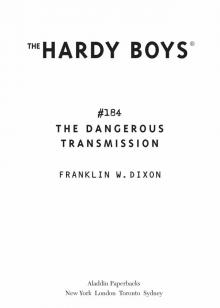 The Dangerous Transmission
The Dangerous Transmission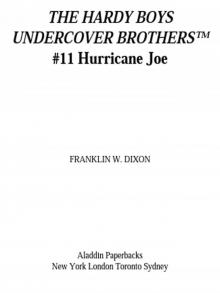 Hurricane Joe
Hurricane Joe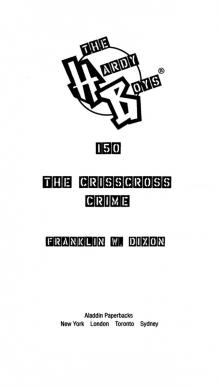 The Crisscross Crime
The Crisscross Crime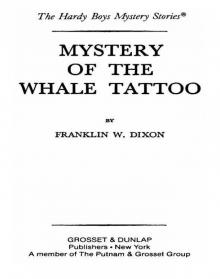 Mystery of the Whale Tattoo
Mystery of the Whale Tattoo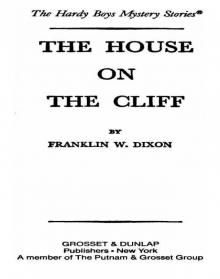 The House on the Cliff
The House on the Cliff Camping Chaos
Camping Chaos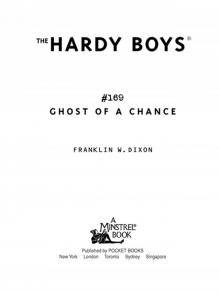 Ghost of a Chance
Ghost of a Chance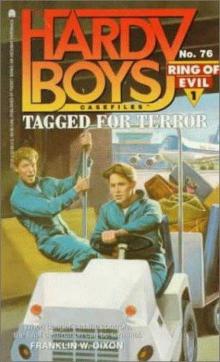 Tagged for Terror
Tagged for Terror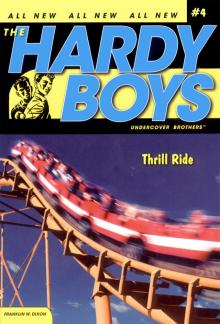 Thrill Ride
Thrill Ride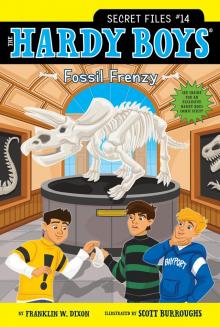 Fossil Frenzy
Fossil Frenzy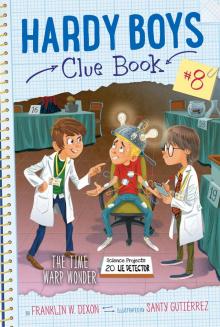 The Time Warp Wonder
The Time Warp Wonder Ghost Stories
Ghost Stories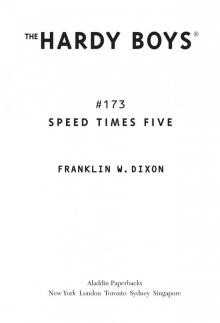 Speed Times Five
Speed Times Five What Happened at Midnight
What Happened at Midnight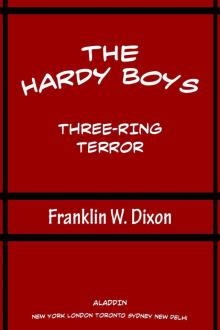 Three-Ring Terror
Three-Ring Terror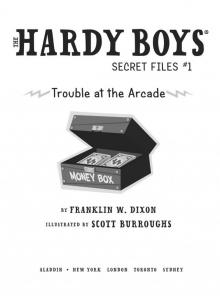 Trouble at the Arcade
Trouble at the Arcade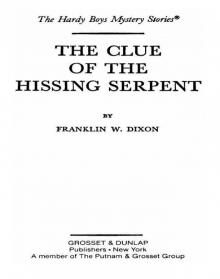 The Clue of the Hissing Serpent
The Clue of the Hissing Serpent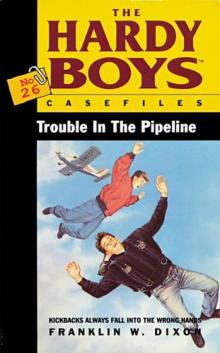 Trouble in the Pipeline
Trouble in the Pipeline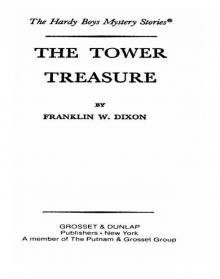 The Tower Treasure
The Tower Treasure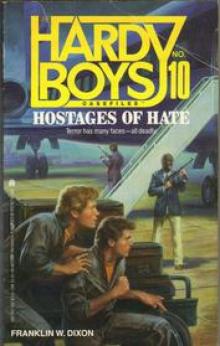 Hostages of Hate
Hostages of Hate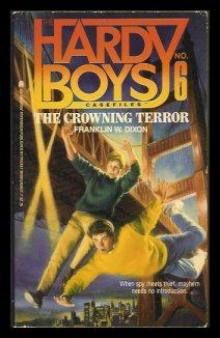 The Crowning Terror
The Crowning Terror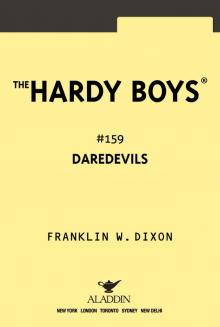 Daredevils
Daredevils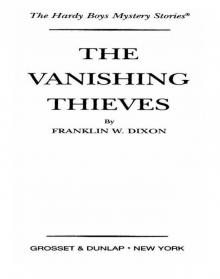 The Vanishing Thieves
The Vanishing Thieves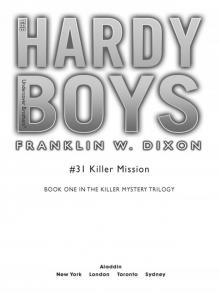 Killer Mission
Killer Mission The Mark of the Blue Tattoo
The Mark of the Blue Tattoo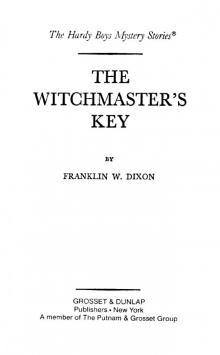 The Witchmaster's Key
The Witchmaster's Key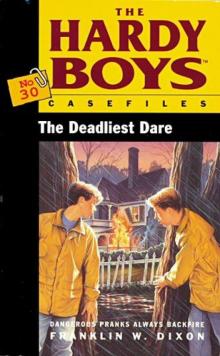 The Deadliest Dare
The Deadliest Dare Peril at Granite Peak
Peril at Granite Peak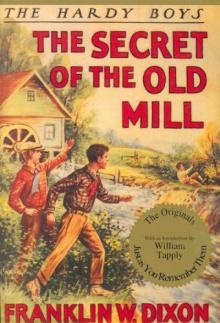 The Secret Of The Old Mill thb-3
The Secret Of The Old Mill thb-3 Rocky Road
Rocky Road The Demolition Mission
The Demolition Mission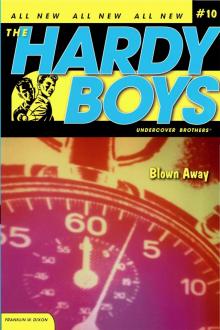 Blown Away
Blown Away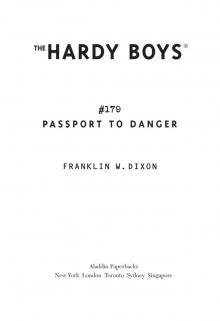 Passport to Danger
Passport to Danger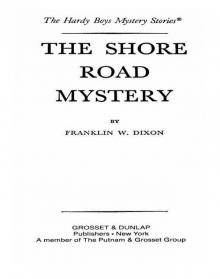 The Shore Road Mystery
The Shore Road Mystery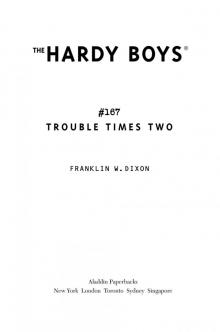 Trouble Times Two
Trouble Times Two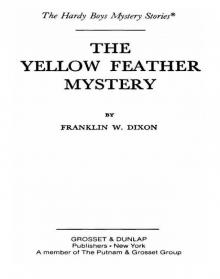 The Yellow Feather Mystery
The Yellow Feather Mystery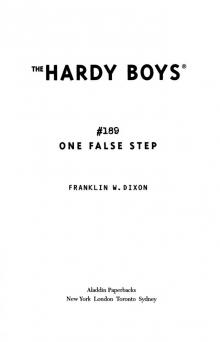 One False Step
One False Step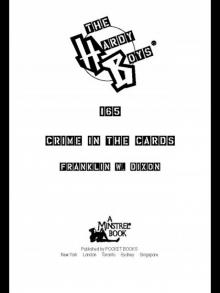 Crime in the Cards
Crime in the Cards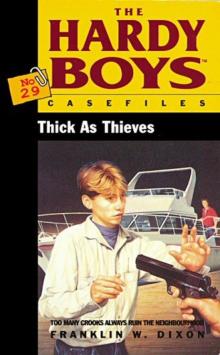 Thick as Thieves
Thick as Thieves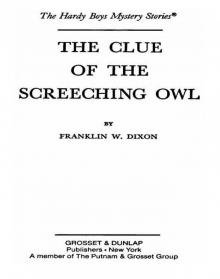 The Clue of the Screeching Owl
The Clue of the Screeching Owl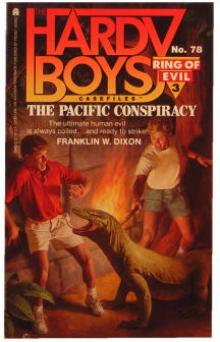 The Pacific Conspiracy
The Pacific Conspiracy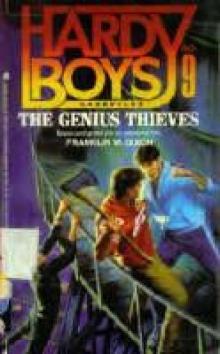 The Genius Thieves
The Genius Thieves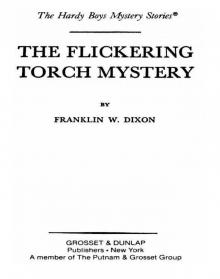 The Flickering Torch Mystery
The Flickering Torch Mystery Into Thin Air
Into Thin Air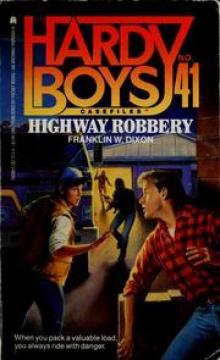 Highway Robbery
Highway Robbery Deadfall
Deadfall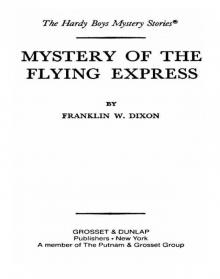 Mystery of the Flying Express
Mystery of the Flying Express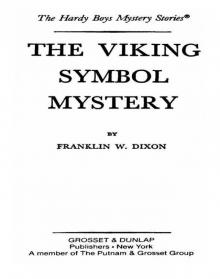 The Viking Symbol Mystery
The Viking Symbol Mystery The End of the Trail
The End of the Trail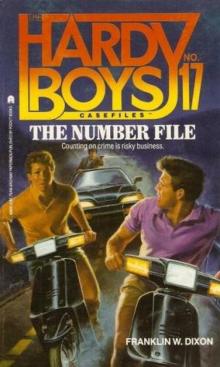 The Number File
The Number File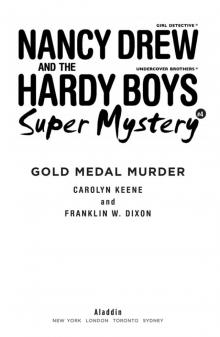 Gold Medal Murder
Gold Medal Murder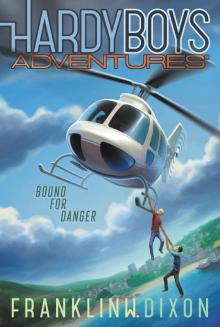 Bound for Danger
Bound for Danger Collision Course
Collision Course The Madman of Black Bear Mountain
The Madman of Black Bear Mountain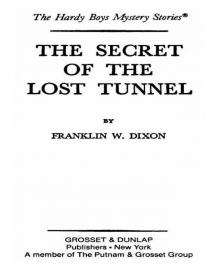 The Secret of the Lost Tunnel
The Secret of the Lost Tunnel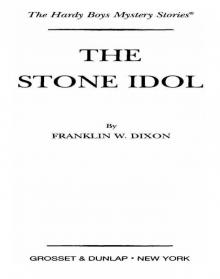 The Stone Idol
The Stone Idol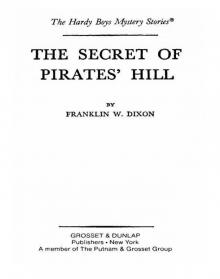 The Secret of Pirates' Hill
The Secret of Pirates' Hill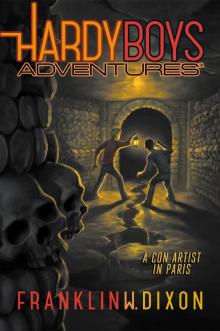 A Con Artist in Paris
A Con Artist in Paris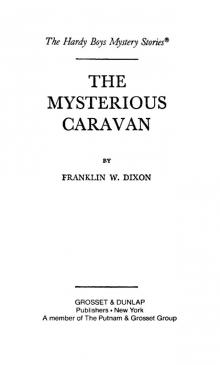 The Mysterious Caravan
The Mysterious Caravan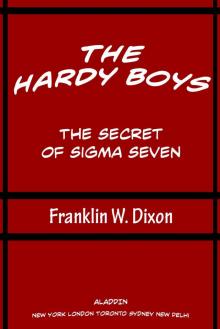 The Secret of Sigma Seven
The Secret of Sigma Seven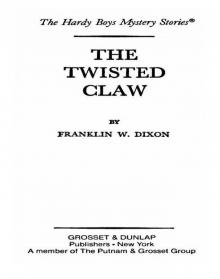 The Twisted Claw
The Twisted Claw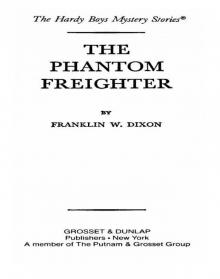 The Phantom Freighter
The Phantom Freighter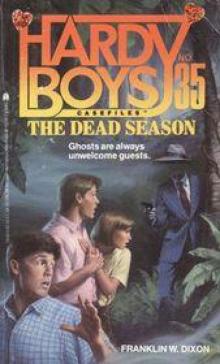 The Dead Season
The Dead Season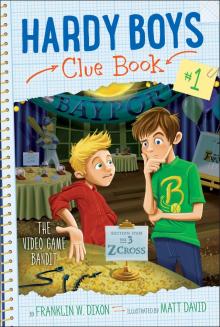 The Video Game Bandit
The Video Game Bandit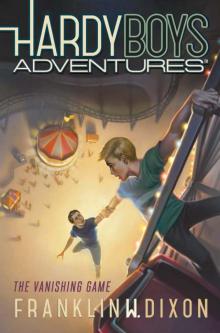 The Vanishing Game
The Vanishing Game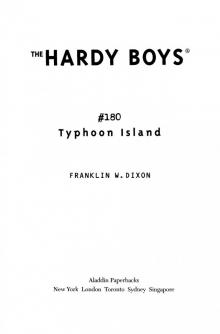 Typhoon Island
Typhoon Island